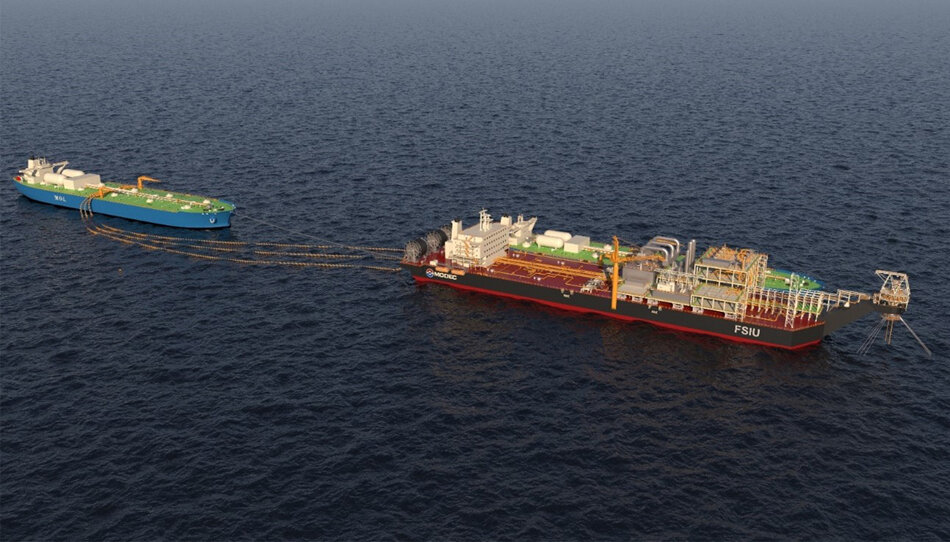By Ajsa Habibic
Copyright offshore-energy

Classification society ABS has approved LCO₂FSIU, a floating storage and injection unit (FSIU) developed by Japan’s MODEC for receiving, temporarily storing, and ultimately injecting carbon dioxide (CO2).
MODEC received ABS’ approval in principle (AiP) for LCO₂FSIU on September 9.
As explained, the FSIU will be able to receive liquid CO2 (LCO2) transported in low-pressure conditions, store, and inject it into subsea wells at high pressure for permanent sequestration, thus eliminating the need for an onshore LCO2 receiving plant and pipeline to injection wells.
The unit is designed with a maximum CO2 injection capacity of 10 million tonnes per annum (mtpa), and a minimum total tank storage capacity of 100,000 cubic meters (cbm).
The FSIU will feature both tandem loading at the aft and simultaneous side-by-side loading at the midship port side to enable flexible and efficient LCO2 transfer from LCO2 carriers, up to 90,000 cbm capacity (tandem) and up to 50,000 cbm (side-by-side), MODEC said.
It will also be equipped with diesel engine generators integrated with a carbon capture system on the topside, minimizing operational CO2 emissions.
The concept was developed in collaboration with Mitsui O.S.K. Lines (MOL), while MODEC joined forces with Mitsubishi Shipbuilding for the unit’s hull.
The Japanese company sees this AiP as ‘a further demonstration of a floating solution for alternative energy production’.
Arata Kamishohara, VP Business and Project Development at MODEC, noted: “While this FSIU is a new concept, each component on the unit is not necessarily new to MODEC. MODEC has experience of CO₂ injection (removed from pre-combustion produced gas) and dual (oil) offloading system. All the utility systems are similar to what we do on FPSOs every day. We collaborated with MOL, who cover the transportation portion of CCUS value chain, for interfaces between LCO₂ carriers and the FSIU. With this, we are planning to achieve $5/tCO₂ or less, which I don’t think is a stretch target.”
Miguel Hernandez, Senior Vice President, Global Offshore, said: “Carbon capture is advancing rapidly, with the International Energy Association projecting global capacity to reach 435 million tonnes per year by 2030. Floating storage and injection units, such as MODEC’s innovative design, will be important for enabling the safe and efficient sequestration of captured carbon. This concept is a step forward in delivering the global carbon value chain and ABS is proud to support its development.”
DNV okays DSIC’s LCO2 FSIU and LCO2 carrier designs
K Line and Yinson Production set sights on LCO2 shipping and injection solutions



